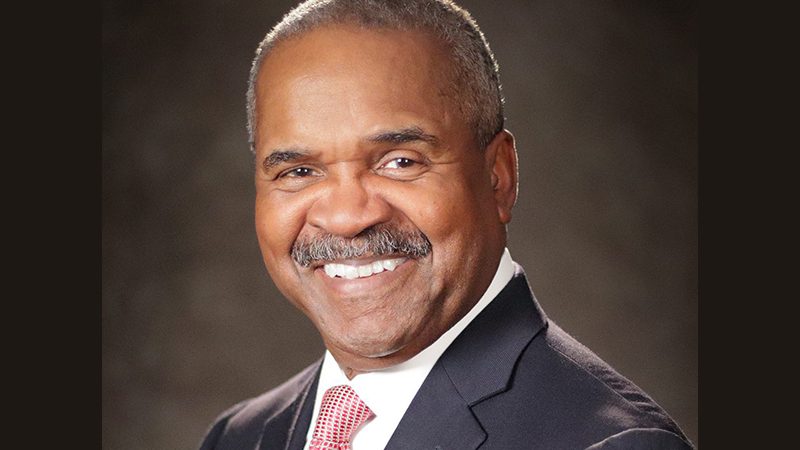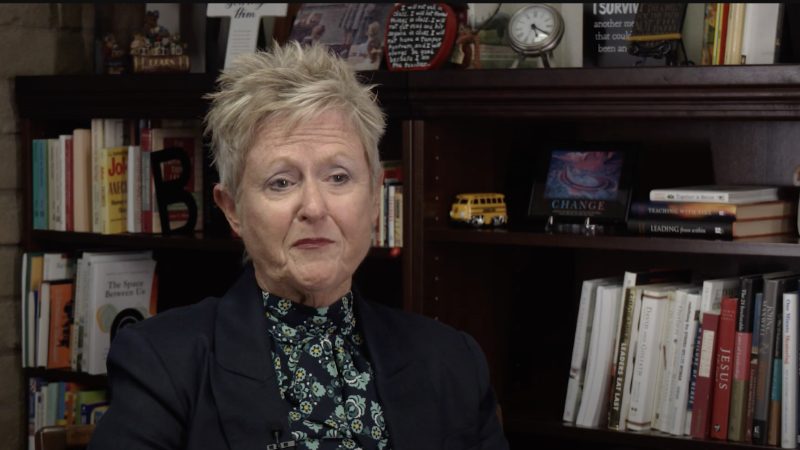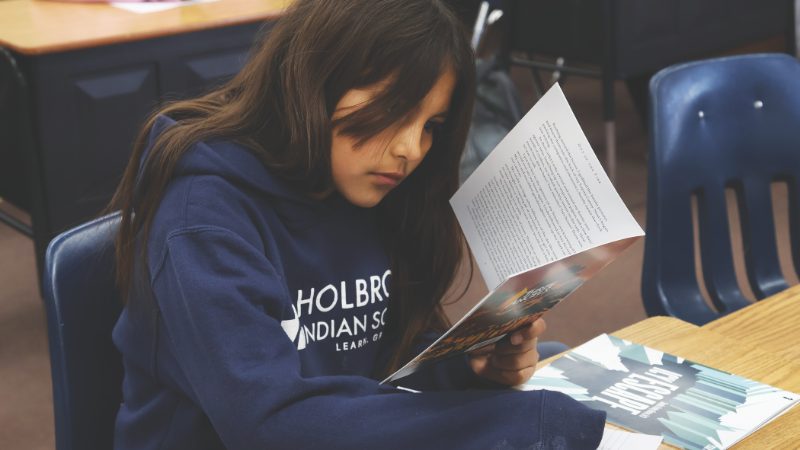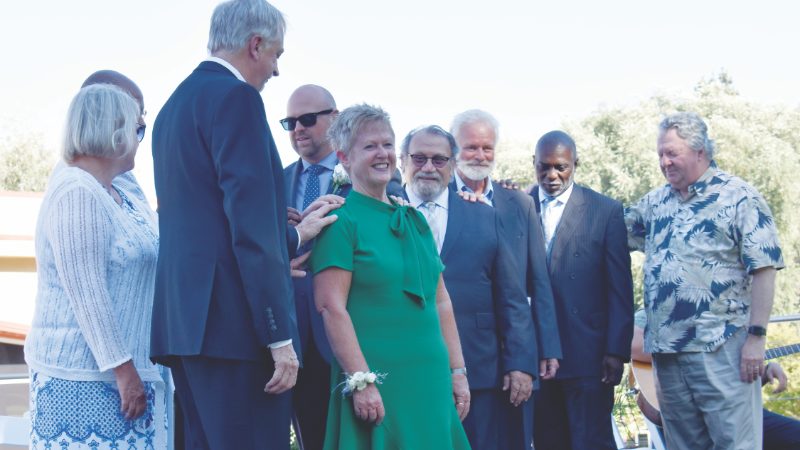
Liss’ warm smile lit up the screen as she joined our videoconference from behind her desk in northern California, where she holds the position of operations director for Kaiser Permanente Health Connect. “This all started,” she began, looking around her office, “with the CNA license I earned at 16.” Liss shook her head in mild disbelief. “Sixteen!”

Liss Leal was born in Cuba, where her father served as a Seventh-day Adventist pastor. Anti-religious sentiments ran high in Cuba in the 1980s, and she and her brother came home with tales of how they were called up in front of the entire student body and openly ridiculed for their beliefs. Their parents decided they could not continue raising their children in such an environment and moved to the United States, eventually landing in Oakland, California, when Liss’ father accepted a call to pastor at a church there. Liss began attending Pleasant Hill Jr. Academy in seventh grade and blossomed under the tutelage of her English teacher, Mrs. Linda Caviness. (Pleasant Hill Adventist Academy moved from junior to senior academy status in 1998.) “English was hard for me,” Liss recalled. “But Mrs. Caviness was the best teacher I could’ve had.” She required students to memorize poems and Scripture passages and engaged them in a variety of projects—all strategies that seemed to target Liss’ eager mind and quickly develop her language skills.
She continued her education at Rio Lindo Academy, and it was there during her junior year that she was introduced to the idea of nursing as a career. Debbie Wallace, who was at the time a nursing instructor at Pacific Union College (PUC), came to talk with the academy students about joining the Certified Nursing Assistant (CNA) program. Liss’ ears perked up at the possibility of earning almost double the minimum wage at the time, and she began taking nursing courses alongside her high school classes. “Having my CNA license allowed me to begin working as a teenager in assisted-living facilities and provided me with my first real exposure to the medical field—interacting with doctors and nurses and therapists and patients.”
It was a seamless transition then from academy to PUC, where Liss dove straight into the program to obtain her licensure for nursing. She began working as a registered nurse at St. Helena Hospital while still finishing her bachelor’s degree in nursing. The promotions seemed to come one right after another—charge nurse, then house supervisor, then the director of the orthopedics and medical/surgical department. After 13 years at the same hospital, picking up another degree along the way and serving as an adjunct professor at PUC, Liss accepted an invitation to work as an assistant nurse manager at a Kaiser Permanente facility.
She quickly climbed the administrative ranks. In her current role as a nurse informaticist, Liss and her team are responsible for building and maintaining the electronic health record (EHR) system that is used across 21 Kaiser Permanente medical centers in Northern California. Sometimes called the “nerve system” of health care organizations, the EHR is as commonplace and indispensable as a thermometer or stethoscope. Nurses—along with social workers, allied health professionals, respiratory therapists, and chaplains—interact with the EHR in almost every single action they take with their patients during their shift. From workflows to patient monitoring to care plans, Liss stands at this intersection of nursing and technology and calmly manages the immense amount of data that streams in and out—all the while looking for ways to improve on best practices.
“It’s about anticipating and understanding the needs of our nurses in their clinical practice—on the floor, by the patient’s bedside—and providing ways through our information systems to meet those needs.” During the pandemic, for instance, their department quickly developed a dashboard with data to monitor how each hospital was handling the surge of covid cases. They had to build mechanisms within the EHR to track where all the ventilators were in their region, to note which beds should be used in the event of overflow, and to guide the process in the unfortunate, but oft-occurring, instance when a patient passed away from covid.
As we spoke about her work—both current and past—it became clear that Liss lives to serve. She smiled at my words and mused, “That’s the influence of Adventist education in my life.” Liss spoke of her teachers’ care and obvious commitment to her and her classmates. “They were clearly driven by something other than their salaries; their motives were born out of love.” She paused and added, “They served me.”

And that set the precedent and the expectations she has held for herself in her work. Regardless of her position, she is constantly looking for how she can serve, how she can have the most impact, how she can expand her circle of influence toward positive change, both for patients and for nurses. “I think back on my education: those teachers didn’t have to be told to care or to be kind—that was in their hearts. That was their motivation and their mission and that is mine now as well.”
Understanding the impact of her teachers’ influence on her life has influenced her own parenting now as a mother of two. “That internal orientation to serve, to do for others, is not born; it’s formed,” Liss emphasized. “It is so important for our children to be surrounded by individuals who model that for them and help them orient their lives toward the ultimate destination of heaven.”
_____________________________
Aimee Leukert is an associate professor of curriculum and instruction at La Sierra University in Riverside, California.
«Estaba en sus corazones»
Por Aimee Saesim Leukert

La cálida sonrisa de Liss iluminó la pantalla cuando se unió a nuestra videoconferencia desde detrás de su escritorio en el norte de California, donde ocupa el cargo de directora de operaciones de Kaiser Permanente Health Connect. «Todo esto comenzó», indicó mirando alrededor de su oficina, «con la licencia de CNA que obtuve a los 16 años». Liss sacudió la cabeza con leve incredulidad. «¡Dieciséis años!»

Liss Leal nació en Cuba, donde su padre sirvió como pastor adventista del séptimo día. Los sentimientos antirreligiosos estaban muy arraigados en Cuba en la década de 1980, y ella y su hermano regresaban a casa con historias de cómo fueron llamados frente a todo el cuerpo estudiantil y ridiculizados abiertamente por sus creencias. Sus padres decidieron que no podían seguir criando a sus hijos en ese ambiente y se mudaron a los Estados Unidos, y finalmente aterrizaron en Oakland, California, cuando el padre de Liss aceptó un llamado para pastorear en una iglesia. Liss comenzó a asistir a Pleasant Hill Jr. Academy en el séptimo grado y floreció bajo la tutela de su maestra de inglés, la Sra. Linda Caviness (Pleasant Hill Adventist Academy pasó de ser una junior academy a senior academy en 1998). «El inglés era difícil para mí», recordó Liss. «Pero la señora Caviness fue la mejor maestra que pude haber tenido». Le pedía a los estudiantes que memorizaran poemas y pasajes de las Escrituras y los involucraba en una variedad de proyectos, todas estrategias que parecían apuntar a la mente ansiosa de Liss y desarrollar rápidamente sus habilidades lingüísticas.
Continuó su educación en Rio Lindo Academy y fue ahí, durante su tercer año, que concibió la idea de la enfermería como carrera. Debbie Wallace, quien en ese momento era instructora de enfermería en Pacific Union College (PUC), vino a hablar con los estudiantes de la academia sobre unirse al programa de Certified Nursing Assistant (CNA). Los oídos de Liss se animaron ante la posibilidad de ganar casi el doble del salario mínimo en ese momento, y comenzó a tomar cursos de enfermería junto con sus clases de high school. «Tener mi licencia de CNA me permitió comenzar a trabajar como adolescente en centros de vida asistida y me proporcionó mi primera exposición real al campo de la medicina, interactuando con médicos, enfermeras, terapeutas y pacientes».
Fue una transición perfecta de la academia a PUC, donde Liss se sumergió directamente en el programa para obtener su licenciatura en enfermería. Comenzó a trabajar como enfermera registrada en St. Helena Hospital mientras terminaba su licenciatura en enfermería. Los ascensos parecían venir uno tras otro: enfermera encargada, supervisora, directora del departamento de ortopedia y médico/cirugía. Después de 13 años en el mismo hospital, obteniendo otro título y sirviendo como profesora adjunta en PUC, Liss aceptó una invitación para trabajar como asistente de administradora de enfermería en un centro de Kaiser Permanente.
Rápidamente ascendió en el escalafón administrativo. En su puesto actual como enfermera informática, Liss y su equipo son responsables de crear y mantener el sistema de registros médicos electrónicos (EHR) que se utiliza en 21 centros médicos de Kaiser Permanente en el norte de California. A veces llamado el «sistema nervioso» de las organizaciones de atención médica, el EHR es tan común e indispensable como un termómetro o un estetoscopio. Las enfermeras, junto con los trabajadores sociales, los auxiliares sanitarios, los terapeutas respiratorios y los capellanes, interactúan con EHR en casi todas las acciones que realizan con sus pacientes durante su turno. Desde los flujos de trabajo hasta la supervisión de los pacientes y los planes de atención, Liss se encuentra en esa intersección de la enfermería y la tecnología y gestiona con calma la inmensa cantidad de datos que entran y salen, al tiempo que busca formas de perfeccionar las mejores prácticas.
«Se trata de anticipar y comprender las necesidades de nuestras enfermeras en su práctica clínica, en el piso, junto a la cama del paciente, y proporcionar formas a través de nuestros sistemas de información para satisfacer esas necesidades». Durante la pandemia, por ejemplo, su departamento desarrolló rápidamente un tablero con datos para monitorear cómo cada hospital estaba lidiando con el aumento de casos de covid. Tuvieron que construir mecanismos dentro de HCE para rastrear dónde estaban todos los respiradores en su región, para anotar qué camas debían usarse en caso de desbordamiento y para guiar el proceso en el desafortunado, pero frecuente, caso en el que un paciente falleciese de covid.
A medida que hablábamos de su trabajo, tanto actual como pasado, quedó claro que Liss vive para servir. Ella sonrió ante mis palabras y reflexionó: «Esa es la influencia de la educación adventista en mi vida». Liss habló del cuidado de sus maestros y del evidente compromiso con ella y sus compañeros de clase. «Claramente estaban motivados por algo más que sus salarios; sus motivos nacieron del amor». Hizo una pausa y agregó: «Me sirvieron».

Eso sentó el precedente y las expectativas que ha tenido para sí misma en su trabajo. Independientemente de su puesto, está constantemente buscando cómo puede servir, cómo puede tener el mayor impacto, cómo puede expandir su círculo de influencia hacia un cambio positivo, tanto para los pacientes como para las enfermeras. «Pienso en mi educación: a esos maestros no se les tenía que decir que se preocupasen o que fuesen amables, estaba en sus corazones. Esa fue su motivación y su misión y esa es la mía ahora también».
Comprender el impacto de la influencia de sus maestros en su vida ha influido en la crianza ahora como madre de dos hijos. «Esa orientación interna de servir, de hacer por los demás, no nace; es formada», enfatizó Liss. «Es muy importante que nuestros hijos estén rodeados de personas que les den un buen ejemplo y les ayuden a orientar sus vidas hacia el destino final del cielo».
_____________________________
Aimee Leukert es profesora asociada de currículo e instrucción en La Sierra University en Riverside, California.





